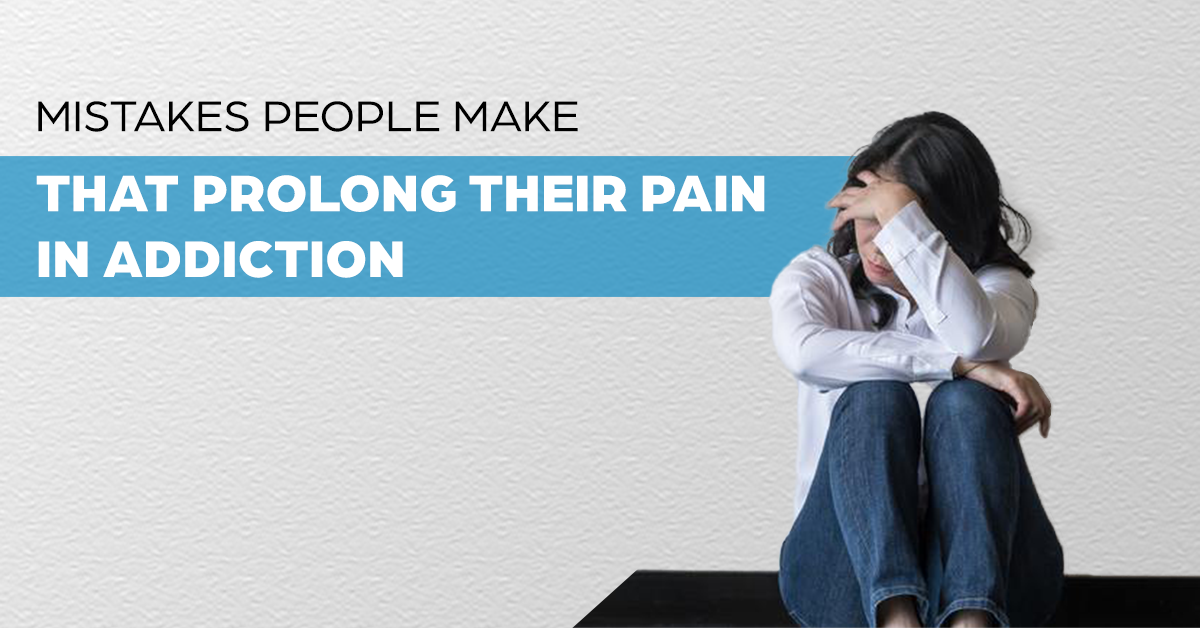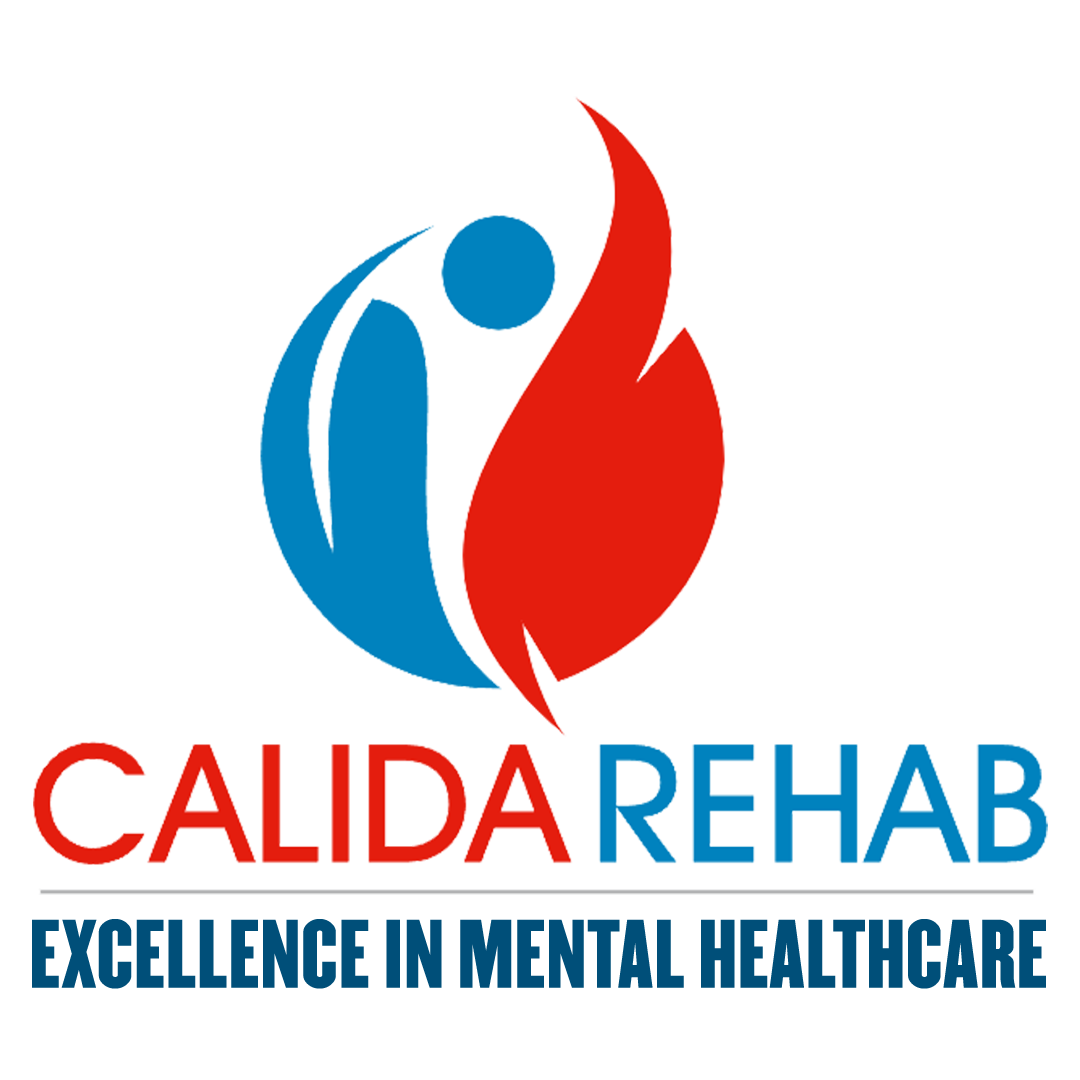
Mistakes People Make That Prolong Their Pain in Addiction
Addiction is a deeply personal and challenging journey that impacts not only the individual but also their loved ones. Unfortunately, many people struggling with addiction make certain mistakes—knowingly or unknowingly—that prolong their pain and delay recovery. These mistakes can stem from a lack of awareness, denial, or the societal stigma surrounding addiction and mental health.
Understanding these pitfalls and how to avoid them can make a significant difference in recovery outcomes. This blog explores the most common mistakes people make in their battle with addiction and offers actionable solutions to support lasting recovery.
1. Denial of the Problem
Denial is one of the most significant barriers to recovery. Many individuals struggling with addiction refuse to acknowledge the severity of their condition. They often convince themselves that they can control their substance use or that the problem isn’t “that bad.” This denial perpetuates the cycle of addiction, making it harder to seek help.
Why It Happens:
- Fear of judgment or stigma.
- Difficulty admitting vulnerability.
- Belief that seeking help is a sign of weakness.
Solution:
Accepting the reality of addiction is the first step toward recovery. Seeking a professional assessment at a trusted facility, such as Calida Rehab, recognized as the best rehab center in Mumbai and best rehabilitation center in Pune, can provide clarity and guidance.
2. Attempting to Quit Without Professional Help
The "do-it-yourself" approach to quitting often backfires. Many people believe they can quit on their own, relying on sheer willpower to overcome addiction. While determination is crucial, withdrawal symptoms, cravings, and emotional triggers often make this approach unsustainable—and, in some cases, dangerous.
Risks of Quitting Alone:
- Severe withdrawal symptoms (e.g., seizures, tremors).
- Increased risk of relapse.
- Lack of emotional support and coping strategies.
Solution:
Professional detox and treatment programs ensure a safer and more effective path to recovery. For instance, alcohol and drug rehabilitation centers in Pune offer medically supervised detox programs that help manage withdrawal symptoms and provide 24/7 care.
3. Ignoring Underlying Mental Health Issues
Addiction often coexists with mental health disorders such as anxiety, depression, PTSD, or bipolar disorder. Ignoring these underlying issues leads to incomplete recovery, as the root causes of addiction remain unaddressed.
Why It’s a Problem:
- Mental health conditions can trigger substance use as a coping mechanism.
- Untreated mental health issues increase the risk of relapse.
Solution:
Choose a facility that offers dual-diagnosis treatment, which addresses both addiction and mental health. Calida Rehab, one of the top mental health rehabs in Mumbai, integrates psychiatric care, counseling, and therapy into its programs to ensure holistic recovery.
4. Opting for Quick Fixes Instead of Long-Term Solutions
Many individuals look for quick solutions to their addiction, such as short-term detox programs or sporadic counseling. While these may provide temporary relief, they fail to address the deeper issues driving addiction.
Why Quick Fixes Fail:
- They don’t provide the tools for long-term sobriety.
- Lack of follow-up care increases the risk of relapse.
Solution:
Commit to a comprehensive, long-term treatment plan. Facilities like residential rehab centers in Mumbai and luxury inpatient rehabs in Pune offer structured programs that include therapy, lifestyle changes, and aftercare to promote lasting recovery.
5. Avoiding Support Networks
Addiction thrives in isolation. Many people feel ashamed or reluctant to share their struggles with family, friends, or support groups. This lack of connection can hinder recovery by making individuals feel alone and unsupported.
The Importance of Support:
- A strong support network provides encouragement and accountability.
- Family involvement fosters understanding and healing.
Solution:
Engage with support groups, family therapy, or community programs. Family counseling for addiction in Mumbai offered by Calida Rehab helps rebuild relationships and creates a supportive environment for recovery.
6. Underestimating Triggers
Triggers are external or internal factors that can cause cravings or relapses. Many individuals underestimate the power of these triggers, such as stress, certain environments, or toxic relationships, which can derail their recovery journey.
Common Triggers:
- Emotional distress (e.g., anger, sadness).
- Environmental cues (e.g., places associated with substance use).
- Peer pressure or toxic influences.
Solution:
Work with addiction specialists to identify and manage triggers. The best luxury rehab centers in Pune, like Calida Rehab, provide therapy and coping strategies to help individuals navigate challenging situations effectively.
7. Skipping Aftercare Programs
Completing a rehab program is a significant milestone, but recovery doesn’t end there. Skipping aftercare programs can leave individuals vulnerable to relapse, as they lack the ongoing support needed to maintain sobriety.
Why Aftercare Matters:
- Recovery is a lifelong journey that requires continuous effort.
- Aftercare provides tools to handle real-world challenges.
Solution:
Participate in aftercare programs, such as outpatient services, support groups, or online counseling for addiction in Pune, to stay connected to a support system.
8. Believing Relapse Equals Failure
Relapse is often perceived as a sign of failure, which can lead to feelings of guilt, shame, and hopelessness. This belief discourages individuals from trying again, trapping them in the cycle of addiction.
Understanding Relapse:
- Relapse is a common part of the recovery journey.
- It’s an opportunity to identify triggers and strengthen coping strategies.
Solution:
View relapse as a learning experience rather than a failure. Seek professional support at the top rehab center in Andheri, Mumbai, to address the relapse and get back on track.
9. Neglecting Family Dynamics
Family dynamics often play a significant role in addiction. Ignoring these dynamics can hinder recovery by leaving unresolved conflicts or enabling behaviors unaddressed.
Impact of Family on Recovery:
- Supportive families can strengthen recovery efforts.
- Dysfunctional family dynamics can perpetuate addiction.
Solution:
Incorporate family therapy into the treatment plan. The best de-addiction centers in Pune offer family counseling to foster healing and understanding for all parties involved.
10. Delaying Treatment
One of the most common mistakes is delaying treatment, often due to fear, stigma, or the belief that the problem will resolve on its own. Unfortunately, addiction typically worsens over time, leading to more severe consequences.
Why People Delay Treatment:
- Fear of judgment or failure.
- Misunderstanding the severity of the problem.
Solution:
Take action now. Whether you're searching for alcohol de-addiction centers in Mumbai or mental health treatment in Pune, Calida Rehab offers compassionate care and effective programs to help you or your loved one recover.
Break the Cycle with the Right Support
Recovery from addiction is a challenging but rewarding journey. By avoiding these common mistakes and seeking the right support, individuals can create a path toward lasting healing.
If you or someone you know is struggling with addiction, don’t wait—take the first step today. Calida Rehab, recognized as one of the best rehab centers in Mumbai and Pune, provides personalized treatment programs tailored to your unique needs, whether it’s alcohol withdrawal treatment in Pune, substance abuse recovery in Mumbai, or psychosis rehabilitation in Mumbai.
Healing starts with action. Contact Calida Rehab today for compassionate, expert care.
